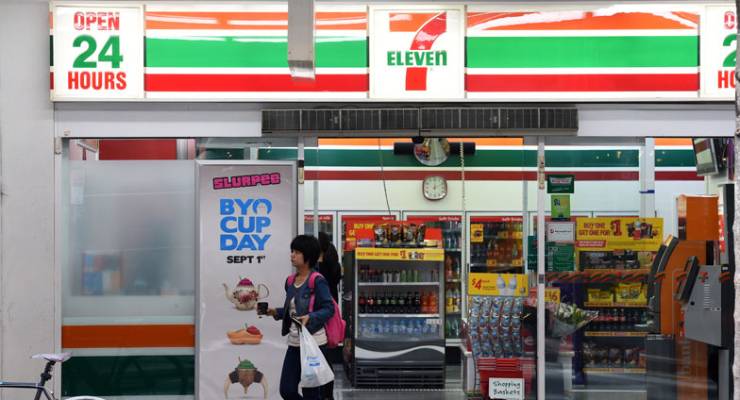
Underpayment of migrant workers is “widespread”, according to the head of the government’s new Migrant Worker Taskforce.
Speaking to attendees of the annual Di Gribble Argument — an event set up to honour the memory of the publishing matron in Melbourne — former Australian Competition and Consumer Commission head Allan Fels said there was recognition within the government that the problem is far bigger than just 7-Eleven, now infamous for underpaying its migrant workforce.
“Various parts of the Commonwealth government can separately do something each about this problem, but to make the whole thing more effective, [it needs to be] more co-ordinated.”
“I think it’s fair to say that whatever you think of it, the government recognises this as a bigger problem.”
On Monday, Fels was appointed to head a new Migrant Worker Taskforce, which brings together members from the ACCC, Australian Securities and Investments Commission, the Tax Office, Border Force, Treasury, the Fair Work Ombudsman and a range of other government departments to advise the government on policy.
He was recently 7-Eleven’s appointee to an arm’s-length review of the company’s employment practices following an explosive Fairfax/Four Corners report that discovered rampant underpayment of its largely migrant workforce, but in May he said he had been sacked from the review when the company decided to handle the underpayments issue internally.
“In the public mind, 7-Eleven raised the awareness of the problem, but we all know that underpayment of migrant works is very widespread in numerous sectors,” he said last night. “In the case of 7-Eleven, it had 20,000 people on the payroll in the last seven or eight years. Although no one knows the exact number, it looks like around 15,000 were underpaid.”
The most common form of underpayment, Fels said, was the scheme revealed by Four Corners, in which people were paid for half of the number of hours they worked. Those on student visas are only allowed to work for 20 hours in a week, so 7-Eleven franchisees were able to secure full-time workers on part-time wages.
“7-Eleven has clamped down a lot, and I give them credit for that,” Fels said. But other forms of underpayment were becoming “widespread”. “The latest form of underpayment … is ‘cash back’. In other words, the correct payment is sent to the bank account of the employee, and the franchisee — the man or woman who runs that little shop — demands half of it be sent to them in order for [the employee] to keep their job or not be dobbed into Immigration, or have other retaliation against them.”
Earlier in the evening, the CFMEU’s Dave Noonan, the head of the construction union, described the difficulties the union had in ensuring the proper payment of 457 visa workers. He described a construction site that employed a mix of Chinese and Filipino 457 visa workers on $53,000 a year, which is the minimum that must be paid to 457 visa holders and well below the industry standard for the type of work they were doing. However, these workers were billed for substandard, overcrowded accommodation and transportation to the worksite by their employer, to the tune of $35,000 a year. The CFMEU tried to advocate on their behalf, with some success, Noonan says. But it couldn’t represent all of them as the Chinese employees had been sent back to China as soon as the CFMEU started asking about them.








It must be the fault of the unions. Maybe we should have a Royal Commission into unions…
“457?”
“For fifty seven cents and hour.”
I wonder what the immigration students are earning on their 485 visas while filling in time looking for a full time Job and/or Permanent residency?
And whilst the immigrants are being royally ripped off, the effect ripples out into the economy in general, keeping citizens’ wages low.
Welcome to the Nu-Rite paradise – all the Old Wrongs in the same shit sandwich.
Did someone say SerfChoices is dead, buried & cremated? In that order?
Similar instances happens in the age care industry. The migrant workers are exploited
They get payed less wages than a cashier in a supermarket. But they are damn hard working friendly compassionate workers. Government of the day need to be alerted soon